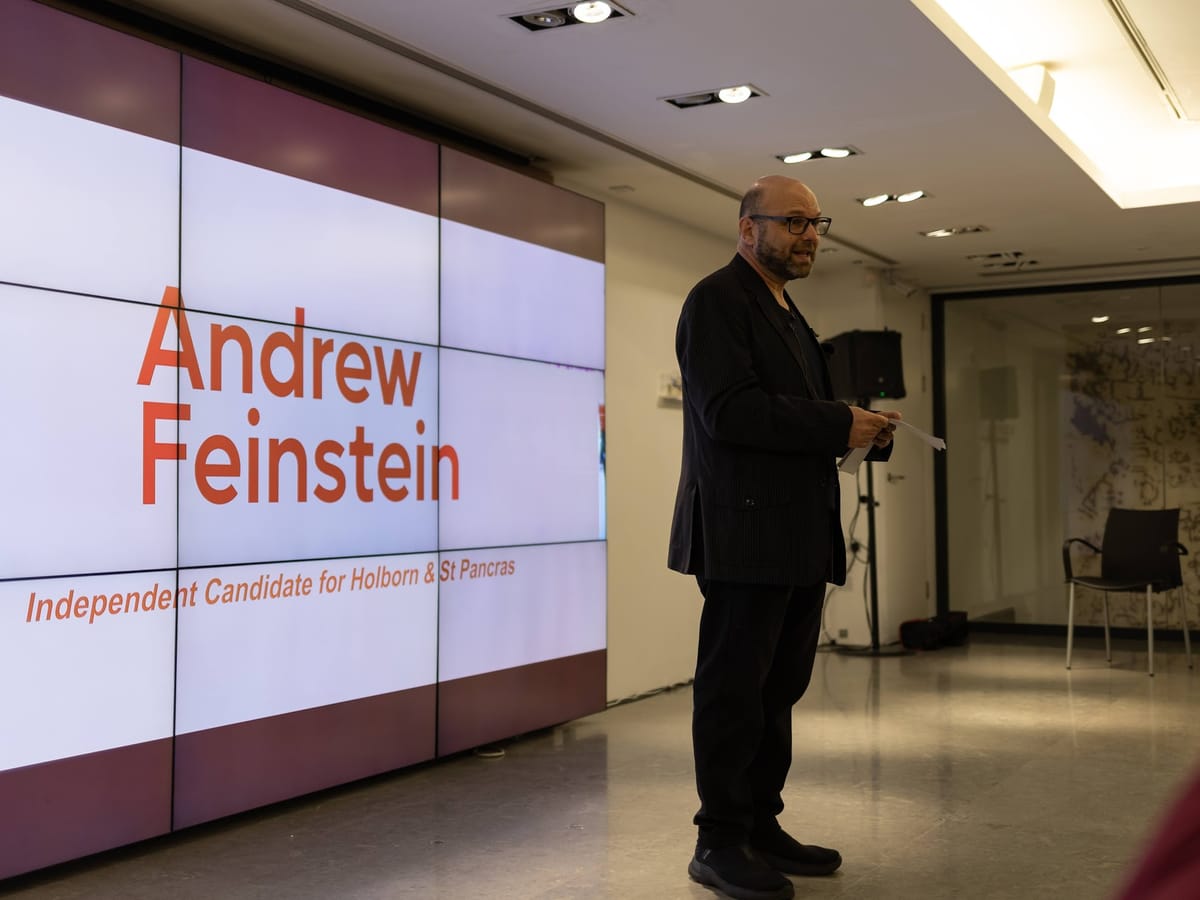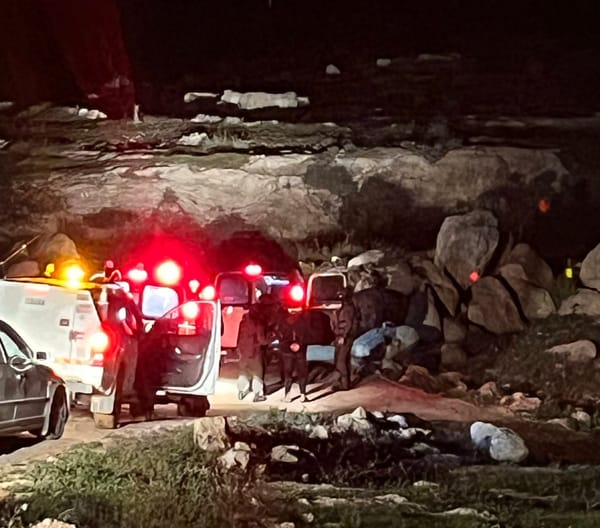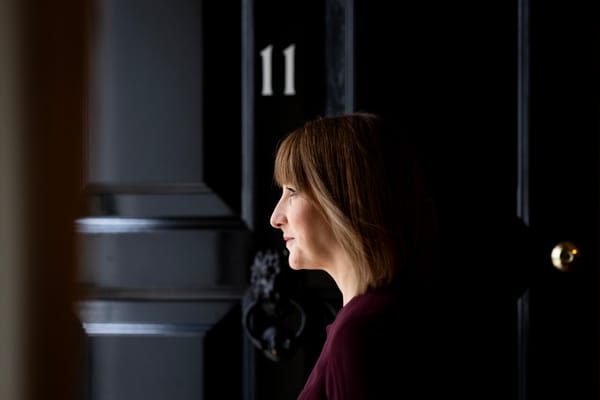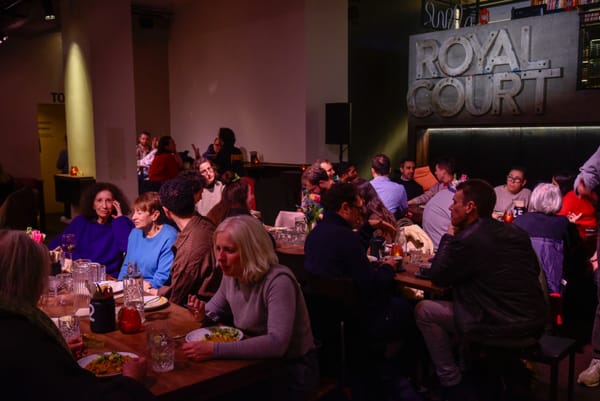‘What pushed me to run was Gaza, to be honest’
Vashti speaks with Andrew Feinstein, the independent parliamentary candidate running for Keir Starmer’s seat

After many months of speculation, late on Wednesday afternoon in the pouring rain, Rishi Sunak stood outside 10 Downing Street and announced the date of the next general election. With 4 July only six weeks away, the campaigning has begun in earnest, and in a sign of what is to come, the leaders of the two main parties have set to work outdoing one another over their anti-migrant credentials.
At Prime Minister’s Questions earlier on Wednesday, while hinting that a national poll was forthcoming, Sunak told the House of Commons that “the British people will in fact see the truth about [Keir Starmer], because that will be the choice at the next election.” For those who belong to Starmer’s own constituency of Holborn and St Pancras, the choice of voting directly for the Labour party leader is a very real one. Among those challenging him for the seat is the activist, author, filmmaker, and former South African MP Andrew Feinstein, who launched his campaign on Tuesday. Like Starmer’s neighbouring MP and predecessor Jeremy Corbyn, who this morning announced his intention to remain as the representative for Islington North, Feinstein will be running as an independent left-wing parliamentary candidate.
In an interview conducted last week, Vashti editors Evan Robins and Eli Machover spoke to Feinstein about the intentions behind his campaign, and how his politics have been shaped by decades of anti-apartheid and anti-corruption struggles in South Africa and beyond, as well his Jewish heritage as the son of a Holocaust survivor.
The following interview has been edited for length and clarity.
What is it that has led you to run as a candidate in Holborn and St Pancras at the general election?
I've lived in the constituency since I've been in the UK, which is almost 23 years. It's been home to me and my family. I love the area. But there are a number of political reasons. The first is that our democracy is in crisis. I think what we've seen over the last seven and a half months is our political leadership feeling more distant from the majority of people in the country than I can ever remember in all the years that I've lived here.
I think that in many ways Keir Starmer, who is my MP, is emblematic of that, and he's emblematic of a lot of what is wrong with our politics, where deceit and mendacity are just accepted. You can say whatever you need to say to get elected, and within months just go back on everything you pledge to do as leader of the Labour party, and it seems like there are no consequences.
Were you involved in the Labour party while Jeremy Corbyn was leader?
I joined [the Labour party] because it's supposed to be a democratic socialist party, which is now neither democratic nor socialist. I think in this upcoming election, people don't have a real choice. So one of the reasons that I'm standing is to give people choice. I think that the people of Holborn and St Pancras really need to have that choice.
There are real issues with the cost of living crisis, housing and homelessness. We have a scarcity of social housing, where people are living now is often overcrowded, repairs seem to take a remarkably long time, if they do happen. We had one incident, where law enforcement authorities, probably on the instructions of the council, removed tents from people living on the street on one of the coldest nights of the year. The council is also quite emblematic of Starmerite politics. It feels very out of touch with a lot of residents of the area.
And were there issues beyond the local ones that drove you to stand?
I suppose what pushed me to run was Gaza, to be quite honest with you. The Labour party’s appalling response to what I believe is a genocide being committed in Gaza. I don't say that lightly. I've actually written for the Auschwitz Institute on Genocide Prevention and lectured at Auschwitz. When I look at what is happening and what is being said, the intent and the conduct, I'm in no doubt that it is a genocide.
And the fact that the Labour party has not been willing to call for an immediate and unqualified ceasefire, that it has been unwilling to call for a ban on arm sales to Israel. That Keir Starmer, my own MP, whom I have voted for in the past, who claims to have been a human rights lawyer, has not said one single word about the ICJ ruling, I find indefensible, inexplicable, and completely unacceptable. And it speaks to a mindset that is a type of politics that I find repugnant.
There is another thing: the role of money in politics. I've seen it in South Africa, I've seen it here, I've obviously seen it in the US. I've seen in a lot of the countries where I do research around the arms trade, because corruption in the arms trade is often a way of getting money into our political system, and it oils the wheels of that system.
If I ended up in parliament I would work against the influence of money in politics. And that is about transparency and accountability, not to billionaire donors, not to private companies, but to the people in the communities that you represent and that pay your salary. Unfortunately, my sense is that Keir Starmer represents his billionaire donors far more than he's ever represented as his constituents.
How do you feel your experience as an MP in South Africa translates to the politics that you want to develop here?
I think that my experience of politics in South Africa was in three phases. The first was the liberation struggle. As a privileged white South African, to be able to play any role in that was extraordinary and an honour. I regarded that as what one owes a society when one has grown up with such privilege because of the colour of one's skin. That period included the transition where I worked as a facilitator in the constitutional process.
Then there were the Mandela years. I was in a provincial legislature for about a year, and then the president moved me to the national parliament. This was four years of everything happening in the national interest. It wasn't about Mandela wanting to ensure he was in power for the rest of his life. It wasn't about doing whatever was in the best interests of the ANC politically. It was about really doing what was in the best interests of the country. I think that was fairly remarkable and unique.
The tragedy of a democratic South Africa is how quickly we adopted the really tawdry global norms of politics and economics, and particularly the intertwining of money and politics. I fought against that, and I resigned on a matter of principle when my committee wasn't allowed to conduct an unaffected investigation into a massively corrupt $10 billion arms deal for weapons that we didn't need and then barely used until today. And as a consequence of that, I thought a lot about the nature of politics and about accountability and transparency.
You've identified many different issues that are the responsibility not only of the Tories in Westminster, but also the local Labour Camden council, and the Labour Mayor of London. So is it a structure that you are running against?
It is. It's a structural politics, effectively, that I'm running against. I do think that both our MP and our council are emblematic of the way in which that structure is not working for many people.
We've had the experience where we've been trying to hold community meetings in the constituency. Since it became fairly apparent in the last few weeks that I am going to stand, the council has been putting pressure on venues to ensure that they won't enable us to do events.
What it says to me is that those who run politics in Camden don't want to have a free and fair democratic election. The person who wants to be the next prime minister of this country doesn't want to have opposition in his own constituency.
This is the reality if you look at Keir Starmer's professional life and his political life since he's been in our constituency. For instance, he went to extraordinary lengths when he first arrived with various outriders in the constituency, ensuring that anybody who was vaguely left-wing, anybody who had been overtly supportive of Jeremy Corbyn was removed from leadership positions in any of our branches.
So I have a real fear that his natural instincts are quite undemocratic and authoritarian. Our experience in the past few weeks is only reinforcing that. I'm not in any way saying that he personally has been instructing people not to allow us to use venues. But the reality is that the council is very close to Keir Starmer, they're very close ideologically and politically. They're very close personally. And this is not democratic politics.
When it comes to those Starmer has been kicking out of the Labour party, there are a lot of people who are supportive of Palestinian liberation who also happen to be Jewish.
The vast, vast majority of them, certainly all of them that I know, are anti-racist Jews, lifelong anti-racist Jews. He has expelled more Jews from the party than in the entire previous history of the party. And this is in order to combat antisemitism?
Antisemitism is something I understand incredibly well. I first experienced it when I was probably eight or nine years old, and that was the first time my mum ever spoke to me about her own personal history of being a Holocaust survivor, of surviving the war in Nazi-occupied Vienna, hidden in a coal cellar. She'd have to be rolled up into a carpet, and the carpet pushed up against the wall. And how terrifying that was for her. She was seven, I think, when the war started. And the fact that she lost dozens of her family, predominantly at Auschwitz. A few of them died in Theresienstadt as well. And how, when she came to South Africa, she understood the notion of “never again” as being not just about Jews, but about all humanity. And she felt that the majority of South Africans who were black were being treated by the apartheid state like the Jews of Europe had been treated during the Second World War. So she got involved with an anti-apartheid group called the Black Sash. She was a puppeteer by profession, and she worked as a puppeteer at something called The People's Space, which was an illegal non-racial theatre. I started going to townships and then to the theatre and meeting people in the political community from a very young age.
So the way in which antisemitism has been weaponised by Keir Starmer and the Labour party, I must be honest with you, actually, I find quite repelling and extremely difficult to cope with.
I'm sure I'm going to be called an antisemite, a self-hating Jew, and everything else. I look forward to the first time that somebody calls me that in this campaign because I feel these issues incredibly strongly and passionately. I feel they're incredibly important to the real fight against real racism in all its forms.
There were a few lines in your chapter “On Being Jewish” in After the Party [Feinstein’s 2007 book] that stood out. You wrote: “the almost ubiquitous Zionism of the South African Jewish community creates an environment in which criticism of Israel is sometimes fallaciously and dangerously equated with antisemitism.” Then you said, “As a consequence, I never felt able to discuss these matters openly with my Jewish constituents.” There are quite a lot of parallels with the British Jewish community. Will this be the case for your Holborn and St. Pancras campaign?
I should say that it was unfair of me to say “my Jewish constituents” as though it was all of them, because of course, I had some Jewish constituents who wanted to discuss nothing but that! We had a few very committed people, but they were a tiny minority, so that was a bit sweeping. I still find it difficult to talk about Israel to what I would describe as moderate, or maybe in some instances, even right-wing Jews. I find it very difficult to talk about Israel, sometimes.
But as I got older, I found it much easier to disagree with people in some ways. And I wish that my 60-year-old self could go back to my 29- and 30-year-old self when I was the MP for that constituency, and feel able to speak more freely about that.
I have friends who avoid me at the moment. We don't talk across different opinions, especially on such fundamental issues, nearly enough. I think not just social media, but even legacy media in this country, has some responsibility for that. Because I think at a time like this, when, in my opinion, genocide is being committed - whether we like it or not - as taxpayers in Britain, with our tax pounds, and therefore, to some extent in our names, there is very little space to have meaningful dialogue about it. I think that's very problematic. Maybe that's one of the reasons now that I find it a little less difficult to talk about this to whoever.
How do you see your own role and the role of your campaign beyond this election?
To be honest with you, it's not for me to decide what my role should be, and it's irrelevant what my role is or isn't. I think politics are much bigger than individuals. I have a very different perception of politics, and that is that politics is about all of us as ordinary people.
One of the things that we would like, after this campaign, is for there to be a sense of a strong progressive movement, again, in Camden. [Different groups] might have different approaches, different issues that are most important to them, but that there is a consolidated left in Camden. We would like to play a facilitating role in that process if people feel it's appropriate.
Mandela once said to me, “I never campaign for any position. When I became President of the ANC they didn't even tell me that the voting was happening.”
What comes out of that mindset is a sense that if there is a need for a certain type of leadership at a certain time in a particular context, it does emerge. And that was the basis of the People's Forums that the ANC did in 1994. I understand it's a very different political context. But we want to recapture just some of the core principles of that, of communities effectively empowering themselves. And sometimes it needs something to ignite it. If the campaign does that, we will feel that it was worthwhile.▼
Evan Robins is an editor at Vashti.
Eli Machover is a PhD candidate in politics at the University of Oxford and an editor at Vashti.





